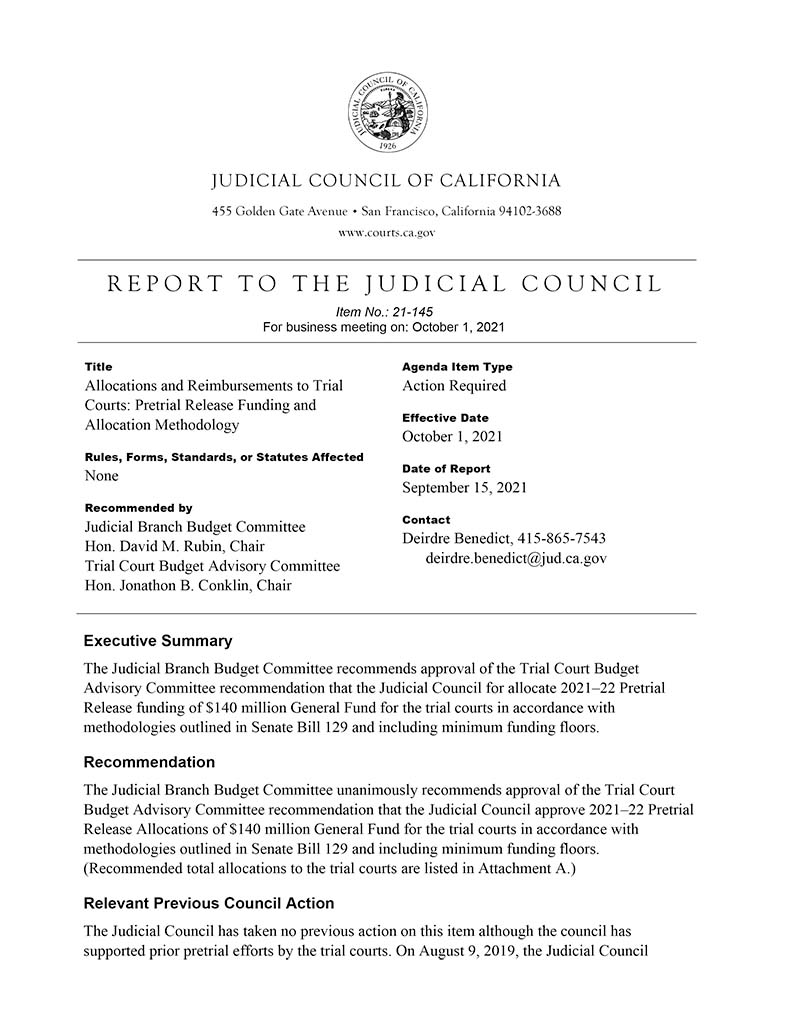California Senate Bill 129: A Backgrounder
California Senate Bill 129 amends the Budget Act of 2021 to provide $140 million in funding for “the implementation and operation of ongoing court programs and practices that promote the safe, efficient, fair, and timely pretrial release of individuals booked into jail,” along with $70 million to expand a pretrial pilot program funded with one-time resources in the 2019 Budget.
SB 129 requires the Judicial Council of California to distribute this funding to 58 California courts and county supervision agencies, providing them with the resources necessary to assist judicial officers in making pretrial release decisions based on the least restrictive conditions, while ensuring public safety.
Courts and agencies are also required to contract for a continuum of response with their county’s probation department to implement appropriate monitoring practices and pretrial services programs for released individuals.
State policymakers have long sought to reform California’s pretrial system, in part to reduce reliance on incarceration. In 2016, California created a Pretrial Detention Reform Workgroup made up of 11 judges from counties across California and one court executive officer and tasked them with examining the complex issues involved in the current pretrial release and detention system. In 2017, the group released a report that determined “the current system is not safe and fair.”
According to a 2021 budget summary released by the state, the funding in SB 129 is intended to impose a statewide initiative to reduce pretrial detention without compromising public safety, citing the Workgroup’s conclusion that incarcerating individuals before their trial is more likely to lead to job, housing or custody loss.
While the intent to reduce reliance on incarceration without risking public safety is inarguably positive, SB 129 also imposes a burden on probation offices, putting them under the gun to quickly implement a comprehensive system of pretrial monitoring and services for released individuals, all while managing their current caseloads.

